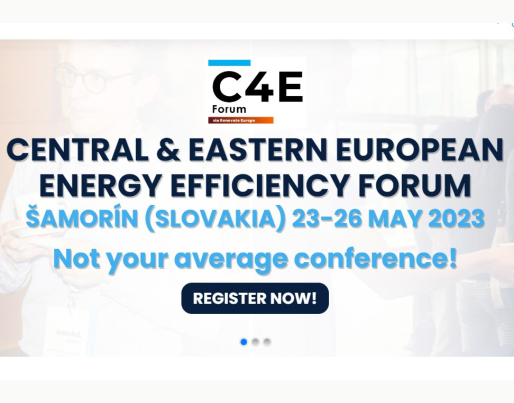C4E Forum 2023: Scaling up renovations of multi-apartment buildings within the current context of energy crisis

C4E Forum 2023: Scaling up renovations of multi-apartment buildings within the current context of energy crisis
Alleviating energy poverty in CEE requires renovating multi-family apartment buildings (MFABs) on a large scale. But how can we effectively renovate them?
Details of the conference
X-Bionic Hotel, Šamorín
Alleviating energy poverty in Central and Eastern Europe (CEE) requires renovating multi-family apartment buildings (MFAB) on a large scale. To effectively renovate them, an enabling policy environment, Resource Centres/One-Stop-Shops and community engagement are essential. However, these need to consider the region-specific attributes, namely the overwhelmingly privatised housing stock and high number of poor homeowners. This session shares the lessons learned in the EU funded H2020 ComAct and RenoHUb project about these topics.
Unprecedented events of 2022 inevitably led the European countries to face an energy crisis, aggravating the challenges of energy poverty and energy inefficiency of buildings. According to a recent European Environmental Bureau’s analysis, the governments of CEE countries lag behind Western European countries regarding energy demand reduction (CEENERGY News, 2023). Hence, the current situation seriously impacted countries in the CEE region where it has been known for long that energy poverty levels are above the EU average. This is due to more complex ownership structures, high number of ageing residential buildings and lacking systemic and holistic approaches to tackle energy poverty in CEE region.
EU funded H2020 Community Tailored Actions for Energy Poverty Mitigation (ComAct) project has come timelier than expected back in 2020 to address the issue of energy poverty by developing a new approach to make energy efficiency interventions in residential building stock affordable, substantially influence energy costs, and consequently reduce the high energy poverty level. Based on the experience gained within ComAct project implementation, this session aims to explain the complexity of renovation in the CEE region. We will talk about energy poverty levels in multi-apartment buildings, ComAct energy poverty survey findings, and then about suitable approaches to renovation, such as the importance of community engagement, the role of Resource Centers/One-Stop-Shops, and narrowing down the policy and regulations environment.
The session, moderated by Zita Kakalejcikova, HFHI EME Project manager of Residential Energy programs, will be joined by, Eva Gerohazi and Hanna Szemzo from the Metropolitan Research Institute (MRI), who will share the results of the ComAct household survey while elaborating on the understanding of the capacity of owners and communities; Teodora Stanisheva from EnEffect, who will focus on the successes and challenges of community development in Bulgaria; Liljana Alceva, from HFH Macedonia, who will share insights on the citizen engagement in scaling up MFABs‘ renovations; and finally, Dr Fanni Safian-Farkas, the Research fellow at MEHI, who will present the lessons learned from another EU-funded project, focusing on the Hungarian one-stop-shop from the RenoHUb project.
The bloc of presentations will be followed by interactive group discussions Focuse on the policy and regulation of HOAs and subisides, as well as the community aspects on the very local level in relation to energy poverty alleviation.